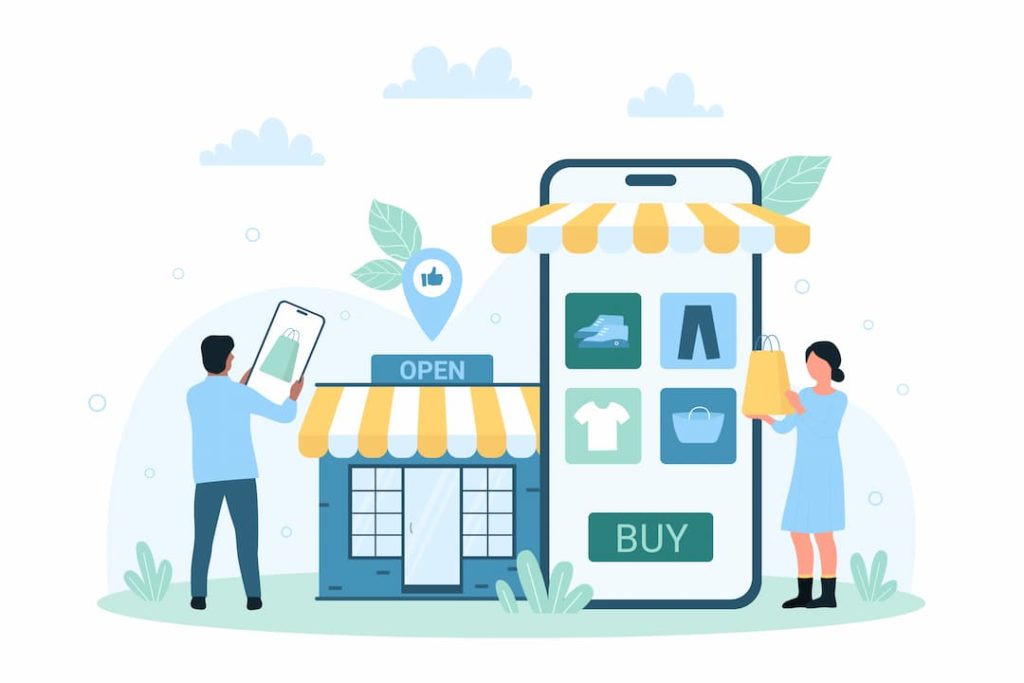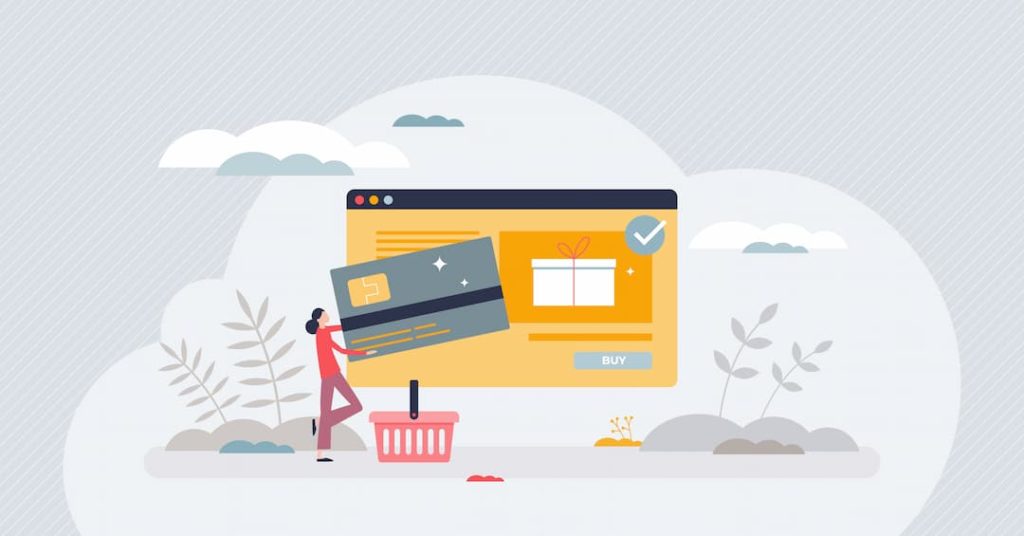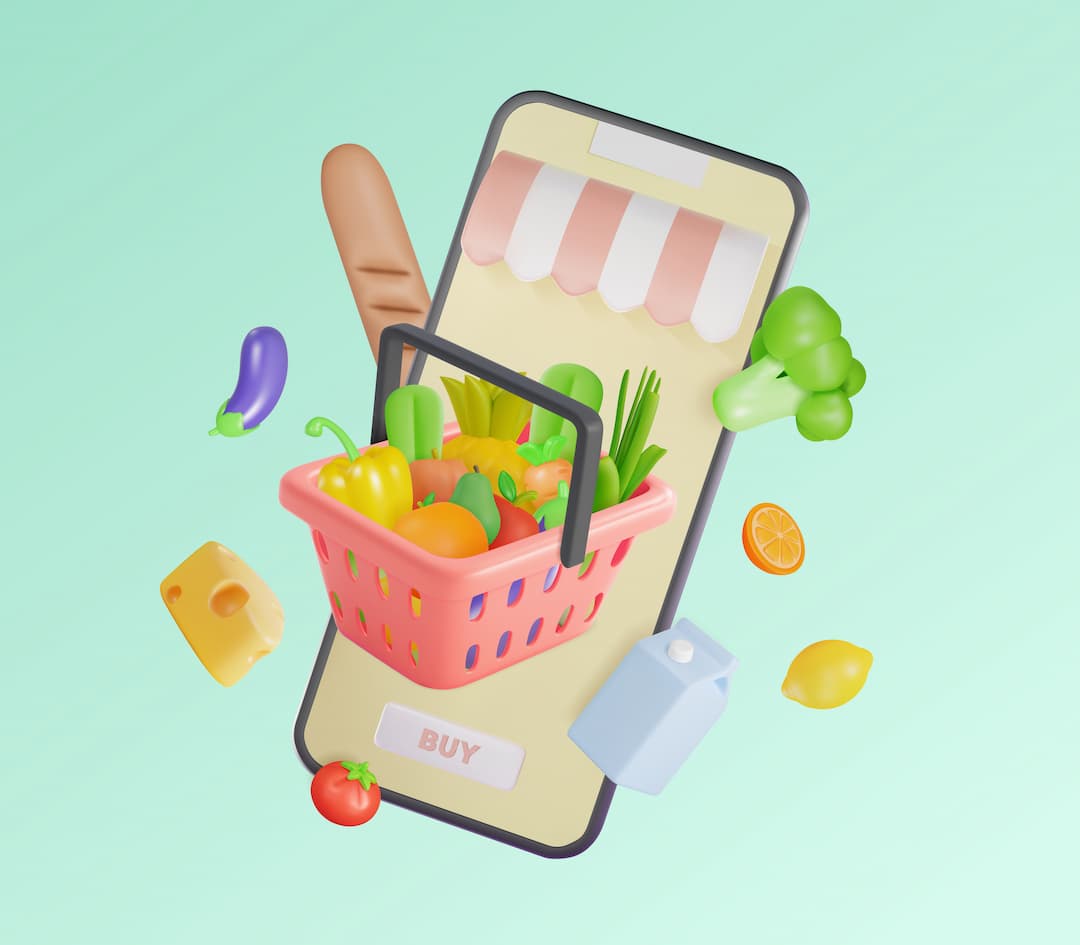If you’ve been reading the Search4Local blog for some time, it’s likely that you know the ins and outs of web design. However, do you know the difference between what a web designer might do for a service business website and an e-commerce site?
There certainly are similarities between the two, but there’s also a lot that sets them apart. E-commerce websites need more functionality and have a different user journey. Let’s explore this.
Best Practice E-Commerce Web Design
There’s a few things to keep in mind if you’re designing an e-commerce website. Firstly, you need to get the branding right. It should be clear to users what the brand is. This can be done by using colour schemes and placing the company logo in appropriate locations on the page. Make sure that your branding makes sense for the products that you sell, or you risk alienating your audience.

Secondly, the web designer should be mindful of how much ‘designing’ they do. Web pages that are overly cluttered and confusing can put users off. There’s no need to overcomplicate things. Overly contrived ways of making purchases are likely to send customers elsewhere. E-commerce web design should be clean, simplistic and easy to understand.
Finally, and perhaps most importantly, e-commerce web design must put trust and security as top priority. Very few people are likely to part with their hard earned cash when its destination looks sketchy. It’s important to make sure that your business looks (and is!) legitimate. This is done by providing accurate NAP data (name, address and phone number) that is consistent throughout your online and physical listings.
E-Commerce Websites: A Platform For Transactions
So, we know that e-commerce websites are a platform for transactions. This means that they need to have additional features installed. A good e-commerce web designer shouldn’t have any trouble with implementing the following:
Product Catalogue
It goes without saying that your users need to know what you have for sale! Your product catalogue should be easy to interpret and navigate. Using categories and tags can help to filter items, making it easier for users to search for what they need. If it takes too long to find a product, you risk losing a sale. Therefore, it should be easy to refine the product catalogue.


Shopping Cart
The shopping cart is the place where the products that users are going to buy are collected. No matter whether a user is buying one item or purchasing multiple products, the cart is essential. Make sure that the shopping cart is easy to access – this is usually done with an icon in the top menu. Without it, users may not know how to complete their transaction and you could lose a sale.
Checkout
When it’s time to secure the product, users need to be directed to the checkout. This is usually accessed via the shopping cart, so it’s easy to review what’s in the basket before committing to pay. You might need to consider functionality for discount codes here, if you choose to use them.


Secure Payment
Perhaps the most important part of an e-commerce transaction is a secure payment gateway. Using trusted payment procedures ensures that your user’s details are safe. It’s most likely that you’ll need to use third-party software to enable online payments. Make sure you look at reviews of the system you choose, and triple check that they’re legitimate, safe and trustworthy.
The E-Commerce Essential: A Clear User Journey
The purpose of an e-commerce website is for users to make purchases. If nobody is able to buy products, or the way to buy products is unclear, you simply have a catalogue website.
So, make it clear what you want your user to do. The homepage should showcase your best products, and have links to the product catalogue. You could even integrate your entire product catalogue into the homepage to make it your user’s first stop.

If you have discount codes that you want to advertise, make them loud and proud at the top of the page. Ensure that you have clear information about payment and delivery options. This should be detailed on the footer of every page, and ideally accompany your product descriptions too.
Your primary goal should be to tell your users to buy your product, and make it easy for them to do so. A good e-commerce web designer will create your website with this in mind. This will leave you with a beautiful website that converts successfully, time after time.
Written by Alice Farley




